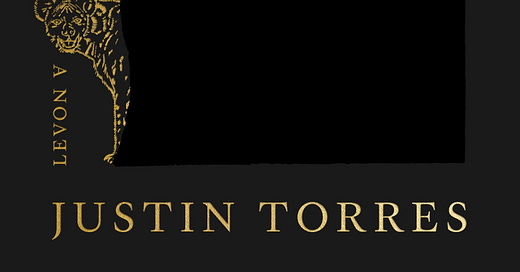Date read: February 2024
Date published: October 2023
Summary
Inspired by Kiss of the Spider Woman, Pedro Páramo, Voodoo Macbeth, the book at its own center and the woman who created it, oral histories, and many more texts, images, and influences, Justin Torres's Blackouts is a work of fiction that sees through the inventions of history and narrative. An extraordinary work of creative imagination, it insists that we look long and steady at the world we have inherited and the world we have made--a world full of ghostly shadows and flashing moments of truth. (via Goodreads)
My Take
This is a truly unique book that pushed me as a reader. It was uncomfortable, difficult to read, and eye-opening. The “blackouts” in the book are actual large chunks of texts that are redacted, like a confidential document, and the words that remain form poems that are sometimes beautiful, sometimes profane. The pages that are redacted (or not) are from a text called “Sex Variants: A Study of Homosexual Patterns.”
The story involves a young gay man, going to a mysterious place called “The Palace,” which is in a desert of unspecified location, to find a man named Juan, who he once knew. The setting is spotty and disorienting, as are the redacted documents and the ongoing conversation between the two main characters. As Juan is dying, the two men exchange stories about their histories, queer history, being unaccepted by family and society, and how they can finish this “project,” to create an alternate history that’s, well, un-redacted.
This book has a lot of the characters being hurt, disowned, rejected, but also in the desolate story and setting, they bring a lot of joy to each other.
I think I’m not well suited for abstract, disjointed, non-linear, purposefully confusing novels. I was consistently confused reading this, but looking back on it now, I think that’s part of the point. You’re reading a ghost story—about people trying to understand how they were erased from history, and how to create their own stories that will carry on. Blackouts won the National Book Award, I think partially because it’s such a different, and thought-provoking, take on the form.
My Rating
6/10—still thinking about this and really admire the unique storytelling





